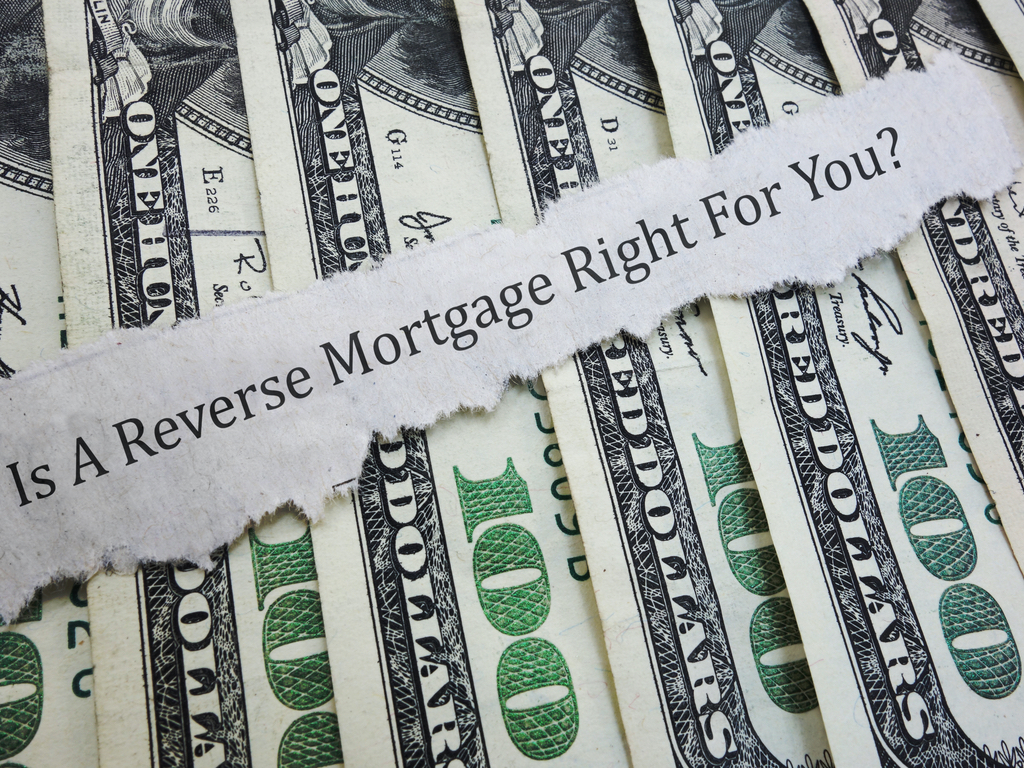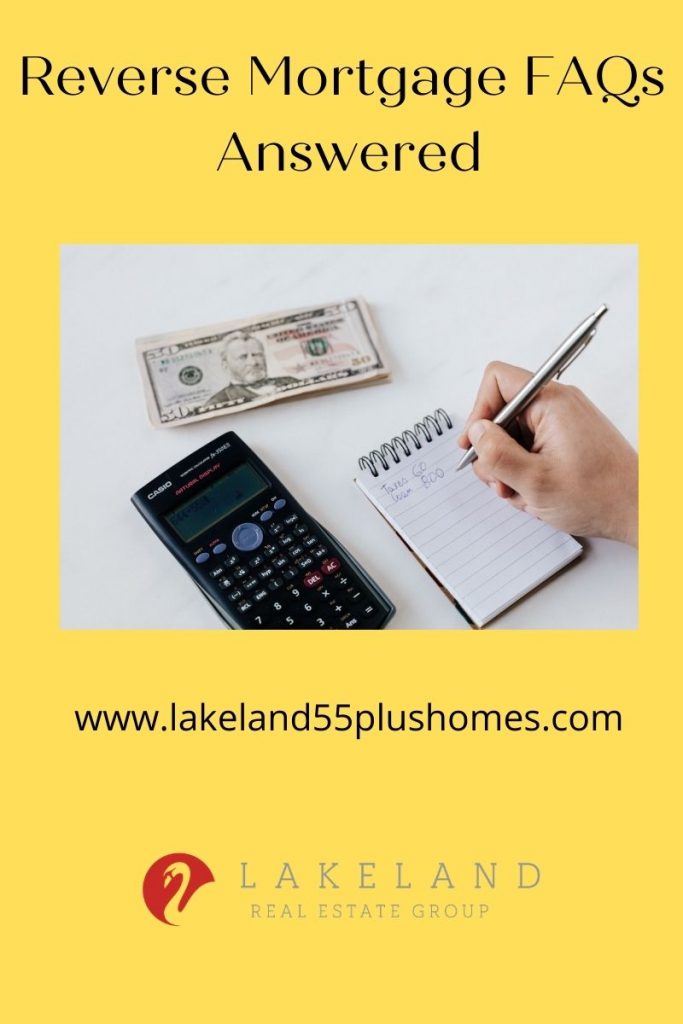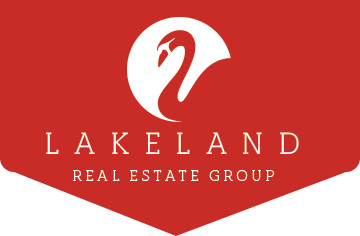Have you been considering a reverse mortgage on your Lakeland, FL area home?
That’s great!
But wait…
Did you know there are three different types of reverse mortgages?
If not, you have a little research to do before you jump in headfirst.

So let’s get started.
First, we’ll talk about the different types of reverse mortgages, then the pros and cons of a reverse mortgage, and we’ll finish with the most frequently asked questions about reverse mortgages.
What Is a Reverse Mortgage?
A reverse mortgage is a type of mortgage loan that uses the equity in your home to provide you with spendable cash. A reverse mortgage is available to homeowners who are 62 or older. And, a reverse mortgage doesn’t require you to pay a monthly mortgage payment.
How Does a Reverse Mortgage Work?
Basically, a reverse mortgage works just like a traditional mortgage but in reverse. For example, with a traditional mortgage, you make a monthly payment on your home loan. With a reverse mortgage, you are provided a loan based on your home’s equity and the mortgage company pays you rather than you having to pay them. This, of course, all depends on which type of reverse mortgage you choose and doesn’t factor in any fees, etc.

Additionally, a reverse mortgage loan will grow in size rather than go down each month like a traditional mortgage. So it’s possible for your mortgage debt to exceed the market value of your home over time. But what’s nice about a reverse mortgage is that your responsibility to repay that debt cannot ever exceed the property’s value. That means your reverse mortgage loan is considered a non-recourse loan so the lender can’t go after any of your other assets or the assets of your heirs.
Next, let’s talk about the three types of reverse mortgages available in the Lakeland, FL area.
What Are the Various Types of Reverse Mortgages?
As we mentioned earlier, there are three types of reverse mortgages which are single-purpose reverse mortgage, home equity conversion mortgage, and the proprietary reverse mortgage. Here is the information for each broken down by type.
- Single-Purpose Reverse Mortgage
The single-purpose reverse mortgage is usually the least expensive of all the reverse mortgage types and is offered by state, local, and non-profit agencies. These entities specify the reason for the singe-purpose reverse mortgage which could be for home repairs, property taxes, etc. However, this type of reverse mortgage isn’t as widely used as the other types of reverse mortgages.
So basically, the homeowner is only allowed to use this type of reverse mortgage for a lender approved single-purpose item. And while this option will cost less in fees and interest than the other two types of reverse mortgages do, but it also reduces the amount the homeowner can borrow.
- Home Equity Conversion Mortgage
The Home Equity Conversion Mortgage is referred to as HECM and is a federally insured reverse mortgage that is backed by HUD. This type of reverse mortgage is generally more expensive than a traditional home loan. Additionally, this type of reverse mortgage is the one that’s most commonly used because it doesn’t have any income limitations or medical requirements, not to mention the money can be used for any reason. There are some requirements though. Those requirements include counseling and education (which you will be charged for) about what is required, the payment options, the responsibilities that accompany the HECM, and about any alternatives available. After the counseling session, you will be told how much money you can borrow and you can then choose from several payment options.
The payment choices include a term option that gives you a set amount of cash each month for a specified amount of time. Or, a tenure option that pays you a specified monthly advance that will continue for as long as you use that home as your primary residence. And lastly, you could also choose to set up a credit line that you can use to withdraw money from at any time, or a monthly payment amount combined with the credit line option.
You are able to change the payment option you selected at any time; however, there is a fee to do so.
- Proprietary Reverse Mortgage
The proprietary reverse mortgage option is typically used for high-value homes. This is because the high value of the home would make you eligible for a higher loan amount. There is sometimes a counseling requirement with these reverse mortgage loans as well but not always. Additionally, the proprietary reverse mortgages aren’t federally insured nor do they have any up-front or monthly mortgage insurance premiums.
The Pros and Cons of a Reverse Mortgage
Just like with anything else in life there are pros and cons to reverse mortgages as well.
Pros:
- You won’t have to pay any monthly mortgage payments for as long as you live in that home.
- You can use the money for anything you want (depending on the type of reverse mortgage you’ve chosen).
- If you have funds left on your line of credit and you have met all your obligations, HUD ensures your money is available to you.
- You can refinance or purchase a new home using a reverse mortgage (more about that in a moment).
- A reverse mortgage gives you more monthly cash to work with boosting your income.
- A reverse mortgage can help you stay in your current home rather than being forced to move. And, in some cases, it might even be cheaper to get a reverse mortgage than it would be to move.
- The money you receive from a reverse mortgage isn’t taxable.
Cons:
- A reverse mortgage isn’t free. With a reverse mortgage, you typically have to pay a lender fee, FHA insurance, closing costs, and any other associated costs. However, these can be added to your loan’s balance.
- A fixed-rate HECM offers less access to your equity than a reverse mortgage with adjustable rates.
- There are a wide variety of issues that accompany status changes to your reverse mortgage. For example, if you go into a long-term care facility, if you marry after you have received a reverse mortgage then pass away does your spouse have to move, etc.
- Receiving a reverse mortgage when you have Medicaid or Supplemental Security Income (SSI) could result in asset restriction violations. So make sure you talk with a lawyer who specializes in elder law before you make any decisions.
- Your home can still be foreclosed on, not for non-payment of a mortgage, but for non-payment of your property taxes, property insurance, or failure to pay your HOA dues, etc.
- A reverse mortgage loan is not assumable by any of your family members and is due as soon as you or the last surviving borrower has moved or passed away.
Reverse Mortgage FAQs
Here are some of the most frequently asked questions about reverse mortgages.

1. Can I refinance my current mortgage using a reverse mortgage?
Yes, you can.
2. Can I purchase a new home using a reverse mortgage?
Yes, you can. This is great because seniors aren’t forced to pay cash for a new home because of having to meet certain income requirements and because of their limited income from social security. And, seniors don’t have to use all the cash from their existing home sale to buy their new home. Not to mention using a reverse mortgage means you will never have to make a mortgage payment. So if homes in 55+ communities were previously unattainable due to their higher prices and having to pay cash, thanks to reverse mortgages now they are.
3. Are Social Security and Medicare affected when taking out a reverse mortgage?
No, they are not.
4. Are Medicare and SSI affected by taking out a reverse mortgage?
Yes, they can be if your liquid balances become too high to qualify for these programs.
5. How much money can you get from a reverse mortgage?
The amount you receive at 62 years of age will usually be about 50% of your home’s appraised value. You will get this money as a lump sum, a line of credit, in monthly payments, or a combination of all these. Usually, the older you are the more money you will receive. There are other factors involved as well such as the current interest rates, etc.
6. At what age can you qualify for a reverse mortgage?
You have to be 62 years of age or older to qualify for a reverse mortgage.
7. Can you sell a house when you have a reverse mortgage?
Yes, you can sell your house at any time just as you would with a traditional mortgage. However, if you have a reverse mortgage and choose to sell your house, you will have to repay the loan. The lender will then close the account and you can keep any remaining equity you have in that home.
8. What happens to a reverse mortgage when I run out of the equity in my home?
When you have a reverse mortgage, the lender can’t come after you for any deficiency in the balance regardless of how large that deficiency is. With a reverse mortgage, you are able to stay in that home until you move or pass away. That means the lender is the one who is on the hook for any decrease in the home’s value.
9. Is the income from a reverse mortgage taxable?
No, the income from a reverse mortgage is not taxable. The reverse mortgage payments you receive are considered loan proceeds, not income.
10. Does having a reverse mortgage hurt your credit?
No, a reverse mortgage doesn’t negatively affect your credit rating.
11. Do you have to have good credit to qualify for a reverse mortgage?
No, you don’t have to have good credit to qualify for a reverse mortgage. However, there are certain requirements for obtaining a reverse mortgage, but having a good credit score isn’t one of them.
12. How much home equity is needed to qualify for a reverse mortgage?
You will typically need about 50 percent or more in equity to get a reverse mortgage. This is due to your having to pay off the existing mortgage first. Therefore, if you don’t have at least 50 percent equity in your home, the money you get from a reverse mortgage won’t be enough to cover that remaining balance.
13. Are there any income requirements in order to qualify for a reverse mortgage?
Yes and no. What that means is that you don’t have to meet any set debt to income ratio. However, most reverse mortgage lenders do require that you meet what’s called a minimum residual income. This is a factor that shows your ability to pay for any future property charges such as the property taxes and homeowner’s insurance, etc. Social security and pension incomes are considered acceptable income types for this purpose.
14. What are the closing costs for a reverse mortgage?
Typically, with a reverse mortgage, you will pay origination fees, interest, mortgage insurance, and closing costs such as appraisal fees, home inspections, credit checks, etc.
What’s Next?
If you would like to explore buying a home, selling your home, or both, please Contact Lakeland Real Estate Group. We have many years of experience helping seniors through the process of buying and selling their homes to meet their changing needs and we’d love to do the same for you.
Other Helpful Resources for Reverse Mortgage and Others
Bill Gassett writes that aying off a reverse mortgage is something that is often left to family members after a death. It is not uncommon for a son or daughter to be left to figure out how to sell a home with a reverse mortgage due to mom or dad passing away. Check out his important tips on when it comes to selling a home with a reverse mortgage.
Most Frequently Asked Questions About Financing a House – www.lakelandfloridaliving.com
About the author: The above real estate article “Must Read Information Before Applying for a Reverse Mortgage” was written by Petra Norris of Lakeland Real Estate Group, Inc. With over 20 years of combined experience of selling or buying, we would love to share our knowledge and expertise. Petra can be reached via email at [email protected] or by phone at 863-712-4207
We service the following Central Florida areas: Lakeland, Auburndale, Mulberry, Winter Haven, Bartow, Plant City, Seffner, Valrico, Polk City, Lake Alfred, Lake Wales, Haines City, and Davenport FL.

